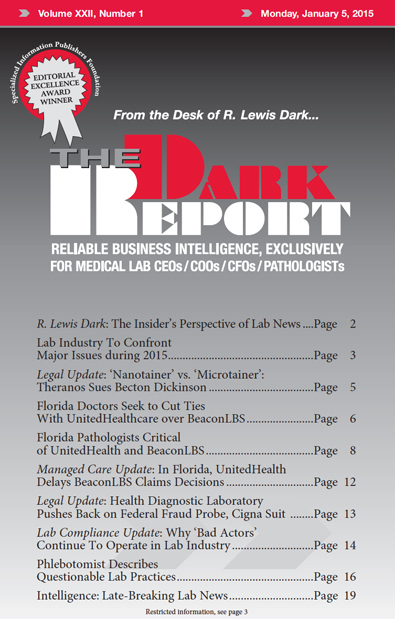CEO SUMMARY: In a letter to UnitedHealthcare, the Florida Society of Pathologists says UHC’s pilot laboratory management program will have a negative effect on patient care by delaying access to care and timely diagnoses of disease. Signed by more than 120 members of the society, the letter lays out inconsistencies in the requirements of UHC’s pilot program that Florida physicians must follow to obtain pre-notification or pre-authorization for more than 80 clinical laboratory tests.
To access this post, you must purchase The Dark Report.


